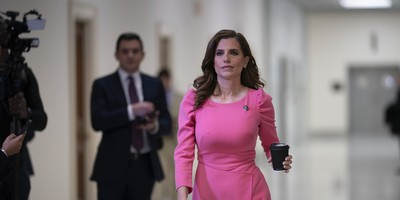The U.S. Supreme Court’s divergent rulings regarding COVID vaccine mandates offer a stark enough contrast between the constitutional limits of the government’s power. But there’s another takeaway from the High Court with far greater consequences to civil liberties, regardless of your position on vaccines.
In a much-ballyhooed win for the rule of law and the Constitution, the High Court soundly rejected the Biden administration’s vaccine mandate for large private employers. The 6-3 decision reaffirmed that the power to make law lies with Congress, not federal agencies, not even during a pandemic.
That is, no matter how much the President desires a vaccine mandate, only Congress can make it happen.
Five Justices overlooked the Separation of Powers in the other case, however, and upheld the vaccine requirement for workers at healthcare facilities that receive funding from the Centers for Medicare and Medicaid Services (CMS). The majority reasoned that the agency is authorized to impose conditions to support its fundamental function of ensuring that “providers who care for Medicare and Medicaid patients protect their patients’ health and safety.”
To be sure, the CMS ruling is not the first legal quibble over congressional intent vs. executive authority, nor will it be the last. But buried deep within a decision concerning vaccine mandates and COVID is a far more consequential depiction of government power: those who take federal funding are bound by the whims of the federal government, even at the expense of civil liberties.
Recommended
Nowhere did the Supreme Court specifically articulate that healthcare providers do not have a choice to accept or reject CMS contracts and the accompanying arbitrary and capricious mandates. But the implications loom large. If your choice is to work with CMS or not work, do healthcare providers actually have a choice?
The ruling fails to recognize that healthcare simply does not function like any other free-market industry. In healthcare, government contracting is near-universal and obligatory. For example, if General Motors decides it does not like the stipulations of a contractor, it can simply contract with a different company. However, the government does not function in healthcare in the same way. The substantial socialization that has occurred within healthcare has afforded the government near-monopolistic power over the industry.
Nearly all hospitals accept Medicare and require participation in the program for doctors to care for patients. Thus, avoiding CMS contracts is near professional suicide for many specialists who, without it, can be denied access to the hospitals where they practice.
In other words, what is a surgeon without an operating room or obstetrician unable to deliver babies?
Unemployed.
CMS mandates are not limited to doctors and nurses. They cover all employees including janitors, billers, and records staff. They encompass anyone working for or affiliated with the growing medical behemoths that control the healthcare landscape through consolidation.
Leaving the government’s monopolistic power over a largely socialized healthcare system out of the equation, Justices Kavanaugh, Roberts, Breyer, Sotomayor, and Kagan cannot possibly recognize the absence of healthcare workers’ true choices and thus undermined their ability to retain both their liberty and healthcare jobs. Doctors, medical assistants, reception staff, nurses, cafeteria workers, and others who value bodily autonomy instead face the brutal decision to forfeit their civil liberties or be excluded from the industry.
Lest readers think this opinion argues against the vaccines, it does not. People can choose for themselves whether to vaccinate or not. This instead argues against the overwhelming power of the increasing central control of the nation’s medical industry and how, under the full socialization of single party payer, all residual freedoms will be removed from healthcare workers.
Under CMS control, today the requirement is the vaccine. Tomorrow it could be anything else.
The Supreme Court’s CMS ruling must be a clarion call to healthcare workers about the unanticipated perils of a centrally controlled healthcare system, and to encourage the pursuit of freer forms of medical practice such as Direct Primary Care. We need a robust alternative option beyond government-controlled healthcare. Though many see single-party payer via the naive belief that it is simply “free” medical care, in reality, single-party payer gives the government control over medical practices, decision making, and as with vaccines, our bodies.
Unfortunately, the Supreme Court has put Americans on notice—you can work in healthcare or have civil liberties but not both.
Chad Savage, M.D. (info@d4pcfoundation.org) is a Heartland Institute Policy Adviser. Docs 4 Patient Care Foundation policy fellow and the President of DPC Action.
























Join the conversation as a VIP Member